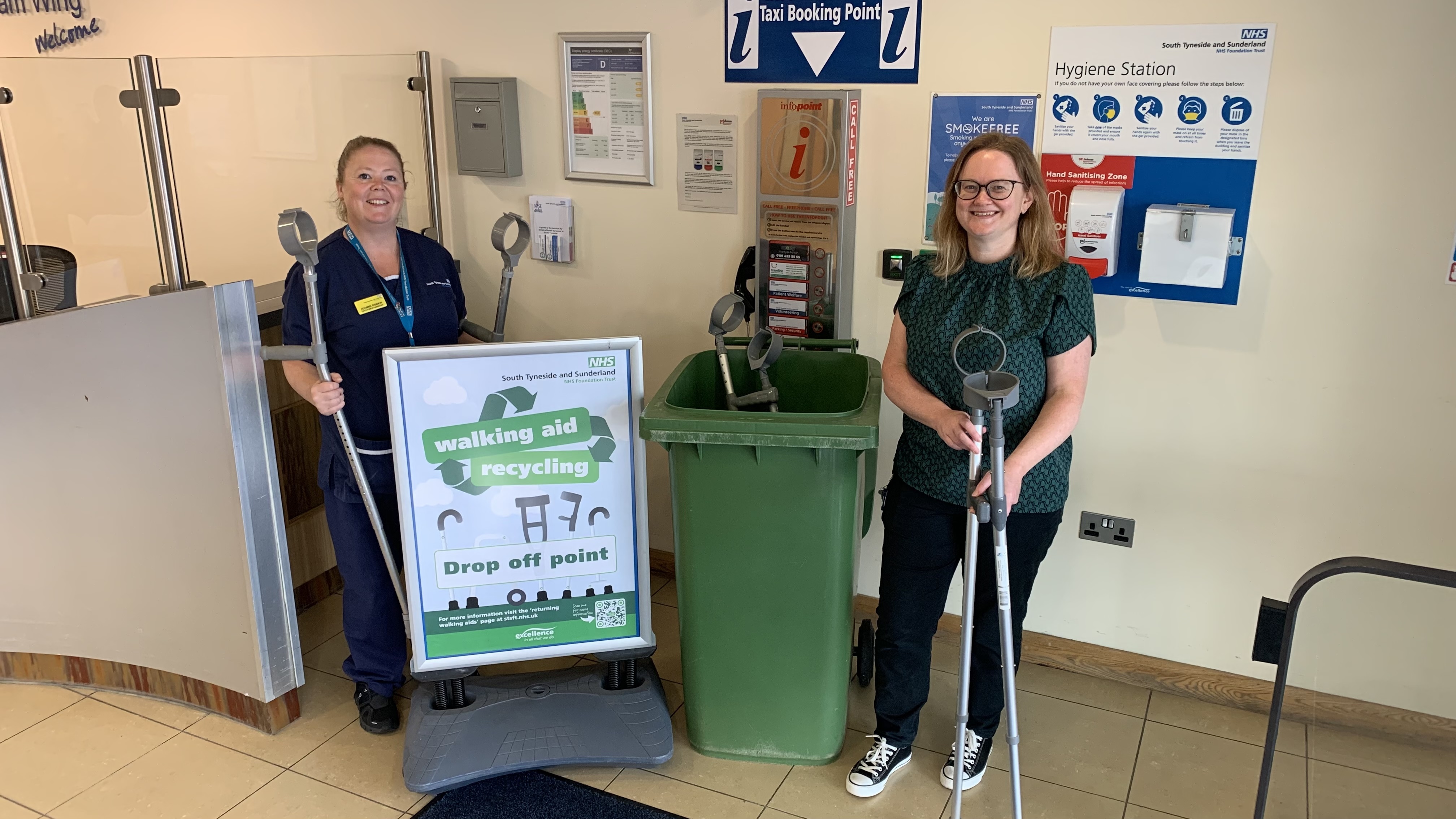Published on: 11 September 2025
Sort out the shed, give the garage a tidy up and have a look up in the loft – the campaign is on to return walking aids and put them to use once again.
South Tyneside and Sunderland NHS Foundation Trust is calling on people who have been given crutches, Zimmer frames or sticks to give them back if they are no longer in use.
Drop off points have been set up so that people can pop by and leave them at either Sunderland Royal Hospital or South Tyneside District Hospital.
They will then be checked, cleaned and any issues repaired before they are handed out for use by another patient.
The Trust spends around £50,000 a year on these pieces of equipment. They are handed out to children and adults through its A&E departments, by its orthopaedic physiotherapy teams and fracture clinics.
The move to recycle the items the Trust hands out will not only save cash – allowing funds to be pumped back into frontline services – but also keep them from clogging up people’s homes and potentially from ending up as landfill.
Walking aid facts:
- Walking aids such as crutches, Zimmer frames, and walking sticks are in the top 20 medical equipment for carbon emissions.
- Making just one aluminium Zimmer frame is the same as, driving a petrol car for 111 miles, 15 fire extinguishers or 30 bags of sugar.
- Making 33 new crutches uses carbon emissions as big as a double decker bus.
The appeal was launched by word-of-mouth by the Trust in March. Since then, the Fracture Clinic has already been able to half the amount of crutches ordered each week from 40 pairs to 20.
In savings, that is...
- £298 saved per week – that is a potential saving of £15,475 per year
- 184 kg CO2 saved per week That is the same as 469 miles driven in a petrol car or three tree seedlings grown for 10 years
Now the Trust is shouting out to past patients to ramp up the recycling efforts.
Paula Oakes, Service Lead Physiotherapist for the Trust, said:
"We’ve asked for walking aids back in the past but we know lots of people still have these at home.
"Walking aids are built to last and many can be refurbished and reused.
"Having more supplies to hand will help us help patients more quickly, as we won’t need to wait for orders coming in.
"This is also much better for the environment. A lot of energy goes into make them and re-using them cuts carbon emissions by 98% compared to handing over a new one."
Joanne Donkin is a fracture clinic manager.
She added:
"We’ve had a really good response to the drop offs so far.
"Bringing them back is an obvious way to save money and help others.
"So, this is a chance to have a clear out and make some space, as well as doing a good deed to help the NHS and get someone back on their feet."

Fracture Clinic Manager Joanne Donkin and Paula Oakes, Service Lead Physiotherapist, are helping to head up the walking aids recycling campaign.
At Sunderland Royal Hospital, items can be handed in at either the main entrance of Kayll Road or Entrance 8, which is next to the Rehabilitation services, or at the Fracture Clinic, which can be found via Entrance 3.
At South Tyneside District Hospital, walking aids can be handed in at the Ingham Wing, which is the entrance to the main hospital building.
A page has been set up on the Trust’s website with more information on the project.
To read more visit: Returning walking aids - drop off points
The page shares details of which teams to contact if people have other items issued by the hospital teams on behalf of community services. It explains how these can be returned and reused.
These items include Zimmer frames and crutches, along with walking sticks, commodes, shower chairs, mattresses, hoists, chairs and beds. These items will have a community service sticker on them.







